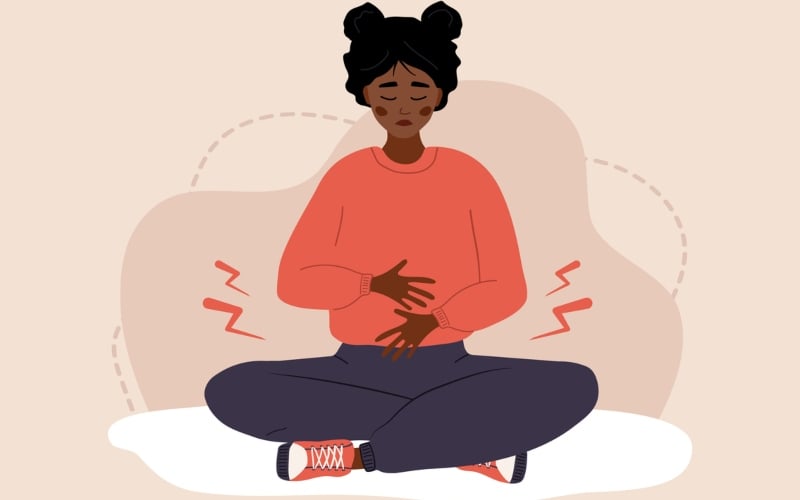—
Are you thinking about starting an exercise program? Good for you. Everyone needs to take better care of themselves in today’s health environment.
Regular exercise has plenty of benefits for the body. Whether you’re just starting a training program to get into shape or you’re planning a complete body transformation, regular exercise will have you feeling like a different person after a few weeks.
Most of us associate exercising with getting our body into shape. However, it also has a profound effect on our mental health. We got together with Keith McNiven from Right Path Fitness to discuss the benefits of exercise on our mental and emotional health.
Keith is a long-time fitness expert, helping thousands of people get back into shape from the confides of the Right Path Fitness Studio in London. Here’s what he said about the link between exercise and our physical, emotional, and mental health.
Reduce Stress in your Life
Many people live under huge amounts of stress, especially in cities like London and New York. Life in the big city moves at a fast pace, and it can wear down your psyche if you’re not in tune with the pressure it exerts on your body and mind.
By undertaking a short-duration period of exercise during the day, you help your body shake off feelings of stress. Those individuals that don’t exercise experience a slow accumulation of tension in the body and mind, creating a high-stress environment, and potentially causing problems with a person’s mental health or goals of wellness.
Even something as simple as walking around the block for 15-minutes each day will provide stress relief.
Help with Your Mental Health and Wellness Goals
People who live in a high-stress environment that don’t take the time to exercise may experience a slow progression and accumulation of stress. When we feel stressed, especially over time, the body releases the hormone “cortisol.” When cortisol levels get too high, it may induce the “fight-or-flight” response in the body.
This fight-or-flight response can be detrimental to our health, giving you the feeling of being constantly on edge. Failing to reduce cortisol levels and get these feelings under control may result in the onset of problems such as high-anxiety disorder and sleeping problems.
Regular exercise helps keep cortisol levels in check, reducing feelings of anxiety associated with elevated levels of the hormone. As a result, you’ll find you start sleeping better, and you may no longer feel like you’re in a constant state of being under threat.
Feel Good About Yourself and Your Life
When we exercise, we experience a release of oxytocin in the brain. This neurotransmitter produces feelings of happiness in your thoughts, increasing your sense of well-being. Some medical experts refer to oxytocin as the “feel good” biochemical, and it’s responsible for the release of elevated levels of dopamine.
As a result, you walk around feeling good and enthusiastic about your place in the world. People who get regular exercise feel more optimistic about life, and they have less stress influencing their decision-making process, allowing them to make better decisions.
Oxytocin and dopamine are critical to mental health. People with lower levels of these neurotransmitters find they have less enthusiasm about their life. Fortunately, you can start to change this imbalance by simply getting a short workout each day.
Find Balance and Control Emotions
If you notice that it’s getting hard to cope with managing your emotions—start exercising. Research shows that regular exercise benefits the natural function of the endocrine system. The endocrine system governs your hormone production, essentially testosterone production in men and estrogen in women.
Regular exercise helps to strengthen endocrine response, balancing your hormonal output. As a result, you feel more balanced in your emotions and have more control over your emotional reaction. An example of how this could help you is that instead of lashing out at someone, you might find that you have more self-control over situations.
Hormonal output declines with age. As men enter their 40s, they start to notice a tapering of the body’s natural testosterone output. It’s the same for women and their estrogen levels, resulting in the start of menopause. Regular exercise can optimize hormone output, slow down some of what naturally occurs in the aging process.
Increase Tolerance and Acceptance
As mentioned, regular exercise can lead to better endocrine and nervous system function. When you have a better endocrine function and more oxytocin and dopamine running through your blood and brain, you’ll find you have a calmer disposition towards life events.
If you have pet hates—such as someone leaving the office door open, you may find that these feelings of animosity dissipate faster, or they might have a lesser influence on your thinking. As a result, you’ll find that your tolerance of stressful situations improves, and you won’t break down to negative triggers that would usually impact your mental state.
Build Mental Strength and Fortitude
Regular exercise is a critical part of our daily lives. Without getting that physical release each day, we end up feeling tired and less energetic. As a result, you’ll find that you probably need an afternoon nap to stay in the game at work.
If you can’t nap during the day, you’ll find that you start going to bed earlier each night, and some mornings you’ll find you just want to keep hitting the snooze button to stay in bed. Both scenarios are not ideal, and they take away from the valuable production time we have during the working day.
While exercising might involve more physical output, it leaves you feeling energized. As a result, you find you don’t have that afternoon energy crash.
Develop a Positive Attitude and Outlook
If you’re feeling depressed or anxious, or you just want to gain control over your own health and wellness, it’s time to take action to turn your thinking and your life around. It might not seem like adding exercise into your daily routine will make much of a difference to your mental health and well-being. However, the reality is that it can be the deciding factor for many people.
However, the biggest challenge with exercising is building a routine and remaining consistent with your training. If you’re new to exercise planning and nutrition you should consider signing up with a personal trainer who can build a custom exercise and nutrition plan tailored to your needs. They’ll be your accountability partner in your transformation and support you along the way with your fitness journey.
Sources
https://www.ncbi.nlm.nih.gov/pmc/articles/PMC4013452/
https://www.ncbi.nlm.nih.gov/pmc/articles/PMC1470658/
https://www.ncbi.nlm.nih.gov/pmc/articles/PMC6711252/
https://www.nia.nih.gov/health/infographics/emotional-benefits-exercise
https://www.ncbi.nlm.nih.gov/pmc/articles/PMC6718717/
—
This content is brought to you by Keith Mcniven.
Shutterstock
The post The Mental and Emotional Benefits of Exercise appeared first on The Good Men Project.
Original Article










